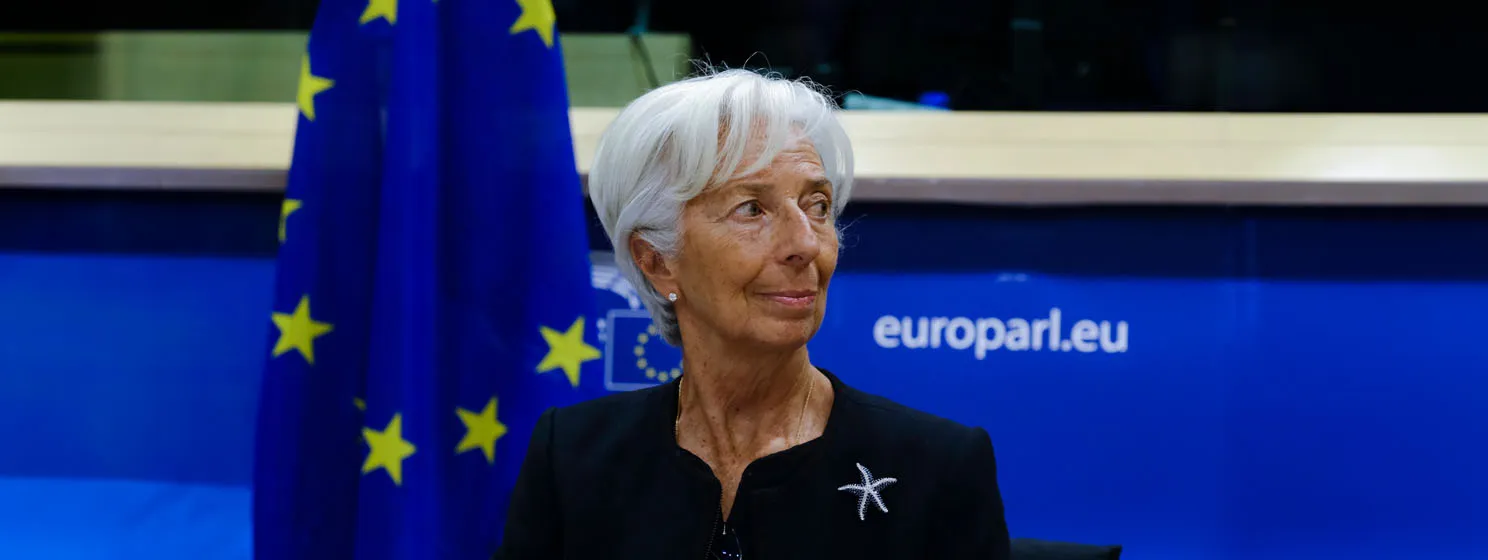|
Getting your Trinity Audio player ready...
|
Binance’s defiance of economic sanctions against Russia isn’t earning the digital asset exchange any favors with the U.S. federal government.
On August 22, the Wall Street Journal (WSJ) reported that Binance remains a key conduit for Russian entities looking to convert rubles into digital assets that can then be exchanged for mainstream fiat currencies. Such activity would violate the Western economic sanctions imposed following Russia’s 2022 invasion of its neighbor Ukraine.
The WSJ provided charts showing the monthly volume of ruble-based digital asset trades on Binance spiking dramatically in the immediate aftermath of Russia’s invasion. Volume has declined since then but still averages in the billions of dollars, with most of the trading focused on stablecoins, primarily Tether’s USDT.
The process involves layers of intermediaries that help move funds out of sanctioned banks, including via Binance’s peer-to-peer (P2P) platform. Russians’ P2P trades averaged around US$428 million per month from October 2022 to March 2023, according to data from the country’s central bank. Binance P2P customers have at least five sanctioned Russian banks through which they can transfer funds, including Rosbank and Tinkoff Bank.
Despite the serious risk of being defrauded by P2P participants—for which Binance disavows any responsibility—Binance has routinely urged customers in markets lacking fiat on-/off-ramps to utilize these P2P markets to move funds without interference/oversight from regulatory authorities.
Transparency International previously reported on Tether’s role in Russian sanctions evasion through the use of P2P over-the-counter (OTC) brokers. CoinDesk subsequently reported that the digital wallets flagged in this report “mostly sent funds to several ‘crypto’ exchanges: Huobi, Binance, WhiteBit and two Russian exchanges, MEXC and Garantex.”
Binance issued a statement denying the WSJ’s claims, saying, “Access to buying and selling USD & EUR on the Binance P2P platform for Russian citizens, as well as any individuals residing in Russia, regardless of nationality, is prohibited. We have no relationship with any banks whatsoever, in Russia or elsewhere, in relation to our P2P program.” (The statement made no mention of buying/selling GBP.)
Binance’s embrace of sketchy P2P activity is not confined to Russia. In 2019, when The Block’s Larry Cermak tweeted about the popularity of P2P OTC’ crypto’ trading in China—a country that has made its antipathy towards all things crypto abundantly clear—CZ replied that “somethings are better left unsaid. Recommend no more news like these, for the sake of the people, our industry (and your business).” CZ’s insistence that Chinese OTC payments were A-OK even earned him a public rebuke from China’s Alipay service.
From Russia with FUD
True to form, Binance and its founder Changpeng ‘CZ’ Zhao have tried to play both sides of this issue. CZ initially declared that the exchange was “meeting sanction requirements” but also claimed that this had resulted in the offboarding of exactly one (1) Russian customer. This lone action was allegedly the result of Binance’s rigorous know-your-customer screening. (We’ll pause a moment while you recover from involuntary laughter.)
But in April of this year, Binance apparently lifted its restrictions on Russian customers yet declared that it was abiding by all the rules it deemed necessary. That—and reports that Binance was facilitating Iranian customers’ efforts to dodge their own U.S. sanctions regime—was reportedly sufficient for the U.S. Department of Justice (DoJ) to open a probe into whether Binance was thumbing its nose at the entire Western financial system.
The WSJ report claimed that members of the so-called Binance Angels, the Binance-trained individuals promoting the exchange online, were telling Russians on Telegram that Binance wasn’t imposing any trading limits on its Russian customers.
Remember that only months before April’s official welcome of Russian customers, Binance was exposed as the top receiving counterparty of the Bitzlato exchange. Bitzlato was notorious for facilitating dirty money transfers linked to Russia’s Hydra darknet marketplace, which was taken offline in April 2022.
Throughout, Binance has maintained its partnership with Russia’s sketchy Advcash payment processor, one of the dwindling number of processors that still sees more reward than risk in assisting Binance’s rule-flouting ways.
Already facing serious civil charges from the U.S. Securities and Exchange Commission (SEC) and Commodity Futures Trading Commission (CFTC), Binance has been on a lawyer-hiring spree as it braces for the DoJ’s imminent filing of criminal charges.
Throughout, CZ has maintained a dismissive public posture, apparently banking on his lack of a permanent domicile to evade an Interpol red notice. But not everyone at Binance is comfortable with CZ’s approach, as evidenced by the number of abrupt resignations by senior managers.
OF*CK
The U.S. sanctions regime is enforced by the Treasury Department’s Office of Foreign Assets Control (OFAC), which has previously targeted numerous individuals and entities while also blacklisting wallets containing digital assets. Among OFAC’s more prominent scalps was Tornado Cash, the Ethereum-based coin mixer popular with North Korea’s state-sponsored hacking groups.
On Wednesday, OFAC sanctioned Tornado Cash co-founder Roman Semenov, a Russian citizen believed to be residing in Dubai. Semenov is accused of having materially assisted, sponsored, or provided financial, material or technological support for sanctioned entities.
The DoJ simultaneously announced charges of conspiracy to commit sanctions violations, conspiracy to commit money laundering, and conspiracy to operate a money-transmitting business against both Semenov and Tornado Cash co-founder Roman Storm (a U.S. resident arrested on Wednesday).
OFAC is no joke, as Binance senior managers are all too aware. The CFTC lawsuit featured an internal chat from December 2018 in which Binance’s former chief compliance officer (CCO) Samuel Lim told a colleague how Binance’s customer support was “teaching ppl how to circumvent sanctions.” Lim was emphatic in adding “there is no fking way in hell I am signing off as the cco for the ofac shit.”
CZ will soon be faced with a choice: accept the U.S. government’s generous offer of ‘three hots and a cot’—perhaps sharing a cell with CZ’s former pal Sam Bankman-Fried (SBF)—or develop a taste for Russian cooking. He’s not likely to find safe harbor anywhere else.
Binance.US to the moon!
Stateside, the Binance.US exchange has struck a deal with crypto-friendly payment processor Moonpay as part of its stated transition to a “crypto-only exchange.” That move followed Binance.US being cut off from U.S. banking following the SEC’s civil suit and the temporary freezing of Binance.US customer funds to prevent CZ from funneling them offshore.
The closest thing to a dollar on Binance.US is now Tether’s USDT. Customers can now send dollars to Moonpay—via debit card, credit card (possibly), Apple Pay (NASDAQ: AAPL), or Google Pay (NASDAQ: GOOGL)—which will change those dollars into USDT. After that, you can send USDT to Binance.US and trade to your heart’s content. To withdraw in dollars, you sell your USDT back to Moonpay. There’s a roughly 3.5% fee for buying USDT and 2.25% fee for withdrawing cash to your local bank.
The question is, how many customers are still foolish enough to trust Binance.US with their assets after all the dirt that’s been revealed by the SEC and CFTC suits? For that matter, who has faith that Binance.US will remain a going concern by year’s end?
Binance.US is fighting a steeply uphill battle against the SEC, stalling on timelines for producing internal documents and trying to prevent SEC officials from interrogating top execs. Among the execs Binance.US doesn’t want put on the hot seat is current CEO Brian Shroder.
Shroder took over from Brian Brooks, who served as CEO for three months in 2021 until he realized that the exchange had no independence from CZ and Binance.com. Brooks replaced Catherine Coley, the original CEO of Binance.US, who also left after discovering she was CZ’s compliance beard.
Both Brooks and Coley have given depositions to SEC investigators. While only snippets of those chats have been made public, their contents were sufficiently damning that Binance doesn’t want Shroder adding to this steaming pile of honesty.
Desperate times, desperate measures
Finally, Wednesday brought word that Gibson Dunn attorney Mary Beth Maloney, who had been repping Binance.US in its fight against the SEC, was withdrawing from the case. The other Gibson Dunn attorneys previously hired by Binance.US will carry on, and a new Wilmer Hale attorney, Andrew Rhys Davies, has been added to the team.
CZ has long been accused of using his customers’ assets to prop up the fiat price of Binance’s in-house backed-by-nothing BNB token. Binance uses its vast stores of BNB to support much of the activity in its ecosystem, including paying staff and serving as margin collateral. This alleged pumping has taken on new urgency as BNB’s fiat value sinks ever lower.
Late Wednesday, a screenshot circulated that appeared to show Binance asking developers and market-makers if they’d be “willing to commit at least 1~5% of your circulating tokens to Binance savings (where you would earn interest)?” Binance also promotes “limited-time offers” of an absurdly high 24% annual return for customers who deposit to the Binance Earn program.
The run on CZ’s illusory bank appears to be well underway. Let’s hope CZ’s lawyers didn’t allow him to pay his retainer in BNB.
Follow CoinGeek’s Crypto Crime Cartel series, which delves into the stream of group—from BitMEX to Binance, Bitcoin.com, Blockstream, ShapeShift, Coinbase, Ripple,
Ethereum, FTX and Tether—who have co-opted the digital asset revolution and turned the industry into a minefield for naïve (and even experienced) players in the market.

 05-06-2025
05-06-2025 





